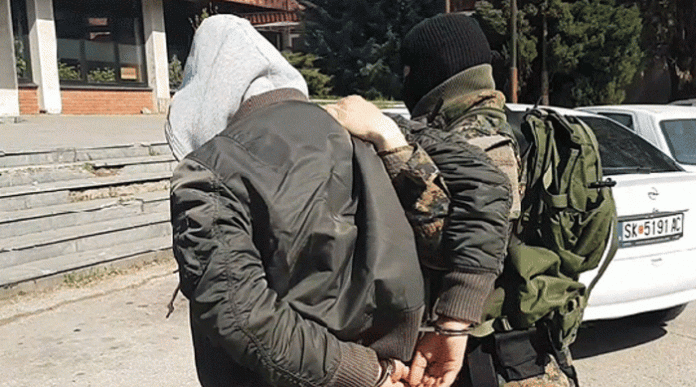An analysis for organized crime for South-East Europe reveals that part of the legally-grown cannabis from Macedonia ends up on the illegal market.
The finding was reported by the independent Geneva-based Global Initiative Against Transnational Organized Crime.
The organization considers Macedonia a “hot spot” when it comes to the activity of transiting illicit drugs, but it is also listed as producer of synthetic drugs.
A 2017 police raids in Batinci, a rural suburb of Skopje, and Tetovo led to the capturing of nearly one million Kaptagon tablets and 52 kilos of amphetamine, as well as other chemicals that have use in the production of drugs.
Two infamous details put Macedonia under scrutiny when it comes the business of illegal drugs:
Police raids in Macedonia have resulted in the capturing of the least quantity of drugs of all other West Balkans countries, except Kosovo.
In 2019 the authorities have caught 997 kilograms of cannabis and only 2 kilograms consisting of other drugs.
Compared with other countries, Serbia has captured 7000+ kilograms and Albania 5000.
Montenegro, whose population of 500,000 is significantly lower compared to Macedonia, has captured double the amount of drugs, at 2000 kilograms.
The report makes a mention of the theft of two tons of cannabis in December 2020, which was followed by a police raid and a surprise half million euro Government grant to the municipality where the raid had taken place.
Eastern Macedonia is pointed out as an area where heroin and synthetic drugs are smuggled from Bulgaria.
Veles is a key city due to its location along the north-east highway corridor which connects Macedonia with the remaining countries in the Western Balkans.
The report states that drug trafficking is only possible with collusion from state structures. A “protection economy” includes border officials and police officers, but also politicians who “protect key players for a cut of the business.”
“The fact that there are relatively few drug seizures in the region suggests a degree of either negligence or corruption among law enforcement,” concludes the Global Initiative report.
All of this provides a logical explanation to why more than two hundred Macedonian passports were issued illegally to international criminals, including kingpins and bosses – by corrupt employees of the state and potentially, a number of high-ranking backers in Government.
The report takes into consideration human trafficking and money laundering as other forms of organized crime activity.
For example, money made from cannabis in Albania is reinvested in cocaine, whose kilogram can fetch a profit margin of up to 20,000 euro. Any one of the categories of organized crime in the report are said to provide financial backing to other forms of crime.
But when it comes to laundering “dirty” money, the Balkans is not the place to go. Criminal structures complete the cycle in places like Dubai and Abu Dhabi, but also by passing the money through outposts of the casino industry.
Criminal structures use regular businesses to accumulate ongoing expenses, costs for renovation, beautification, inventory and so on. Some businesses, like clubs, bakeries, hotels, sport clubs, etc. are closed only two or three years after operation – once they have completed the task of covering for the illicit money.
“In Macedonia, these legal fronts for money laundering were engaged in legitimate
business activities as cafeterias, pizzerias, restaurants, hotels and gas stations. The common
denominator for all these businesses was the fact that they used cash payments.”
One of the industries that gets a special look from the report is the real estate and construction industry, which has been booming throughout most of the Western Balkans, including Macedonia, where new residential space in Skopje can reach as much 1,600 euro per square meter.



